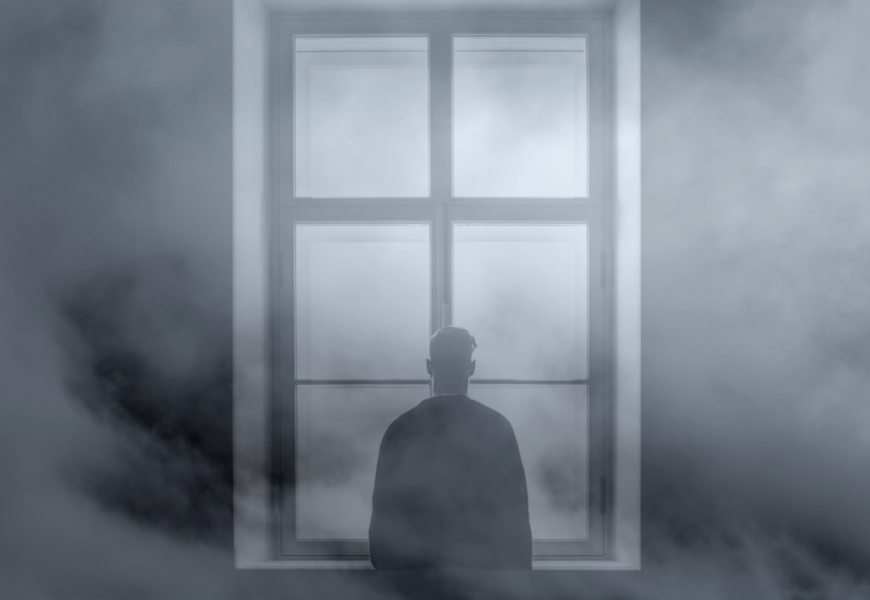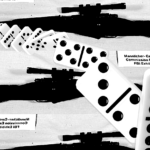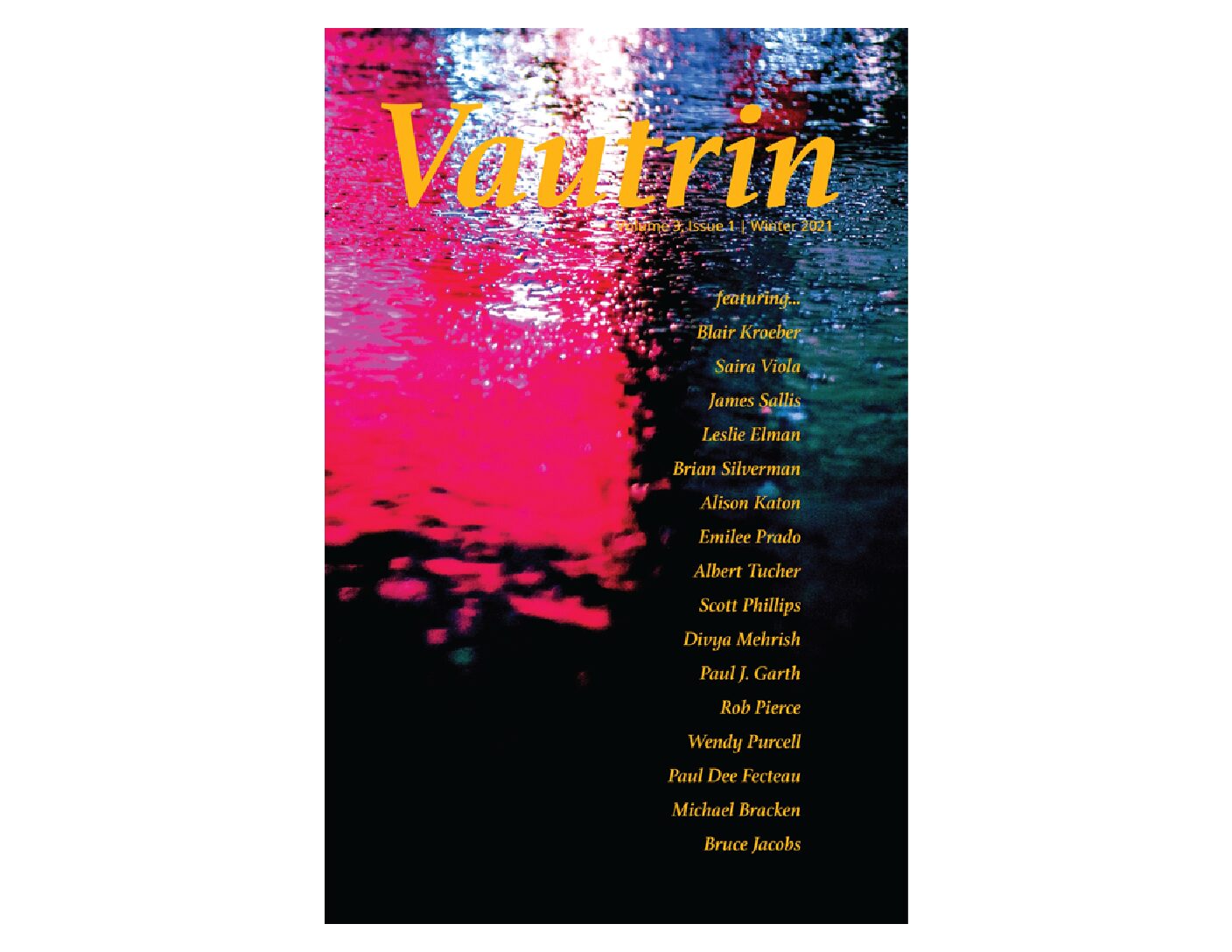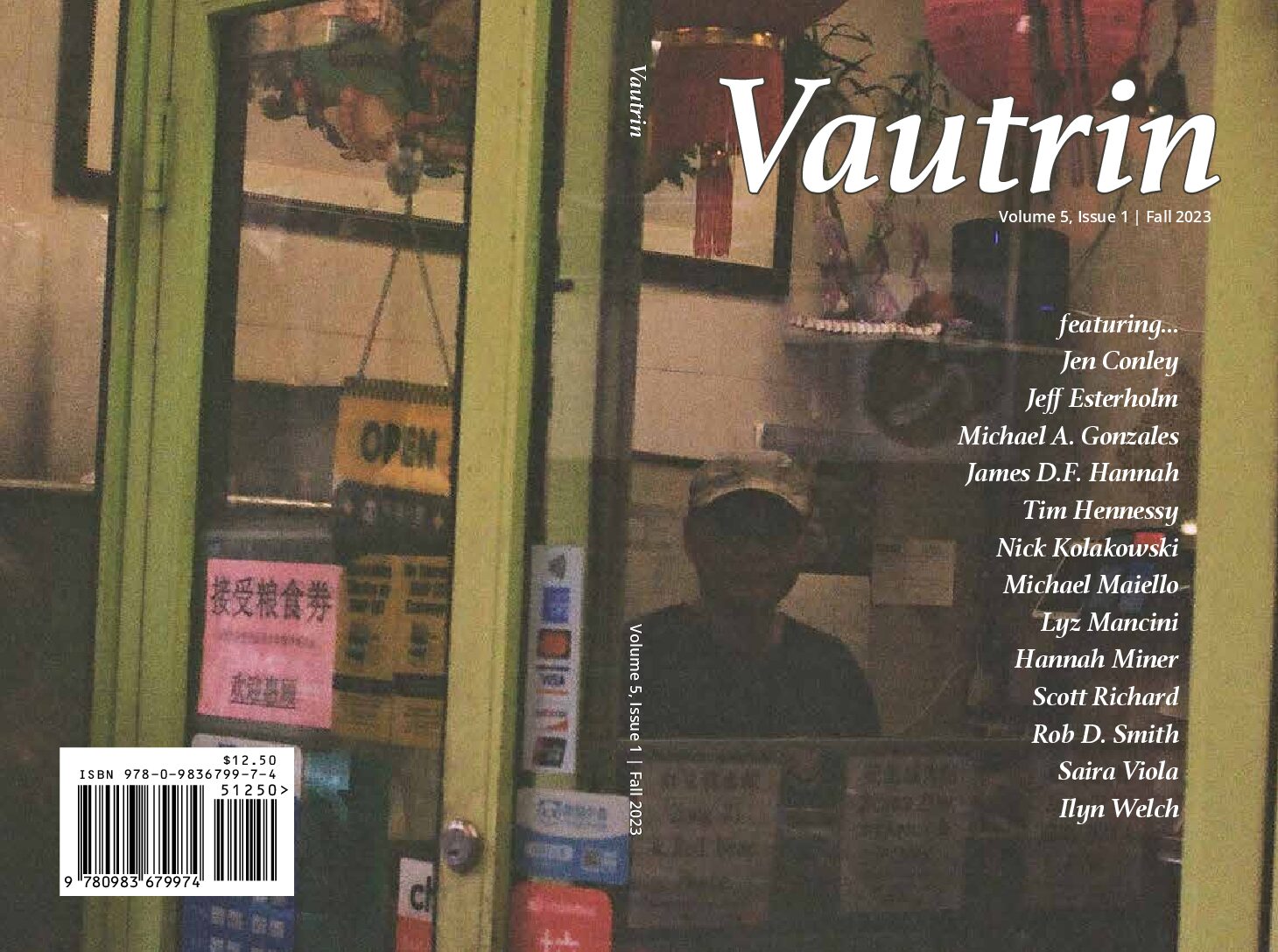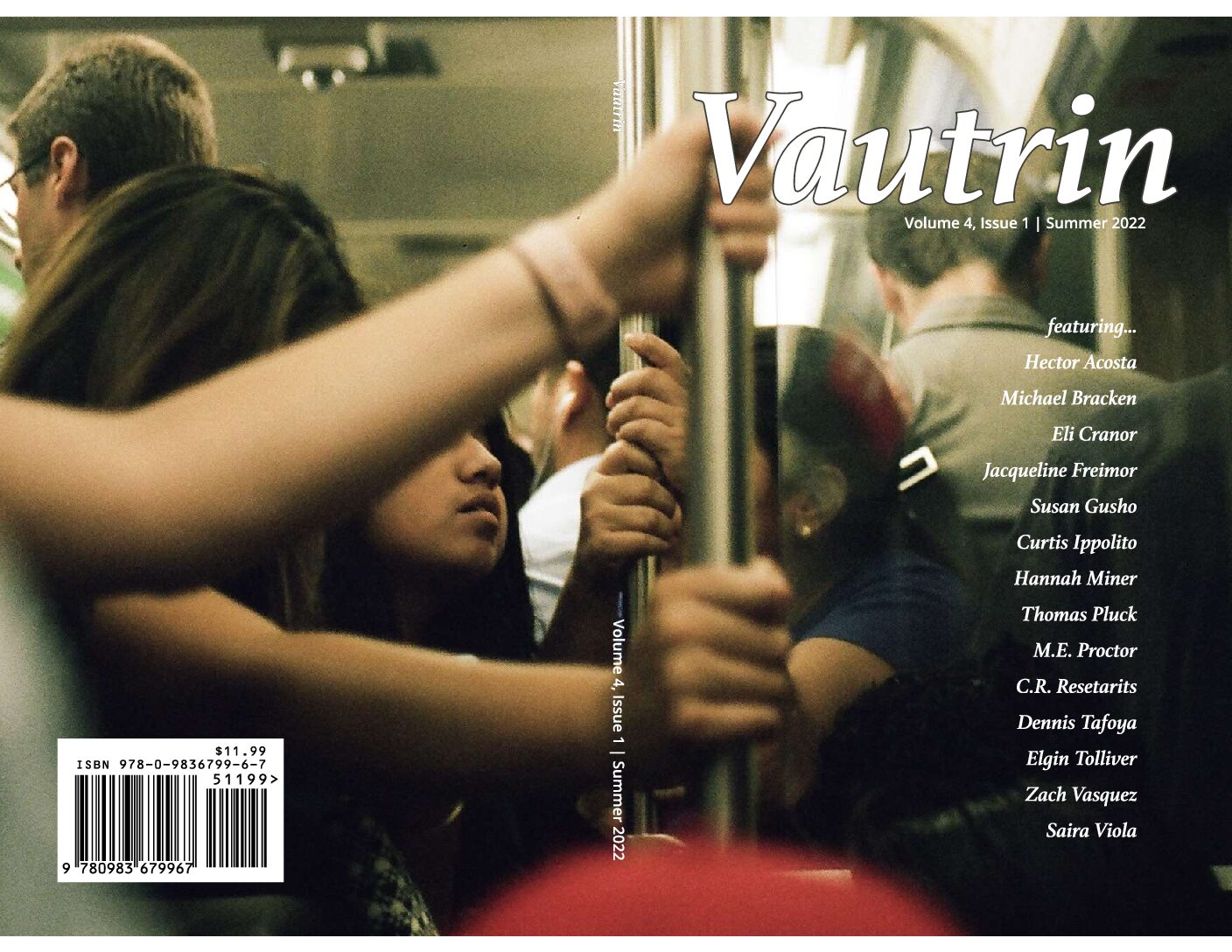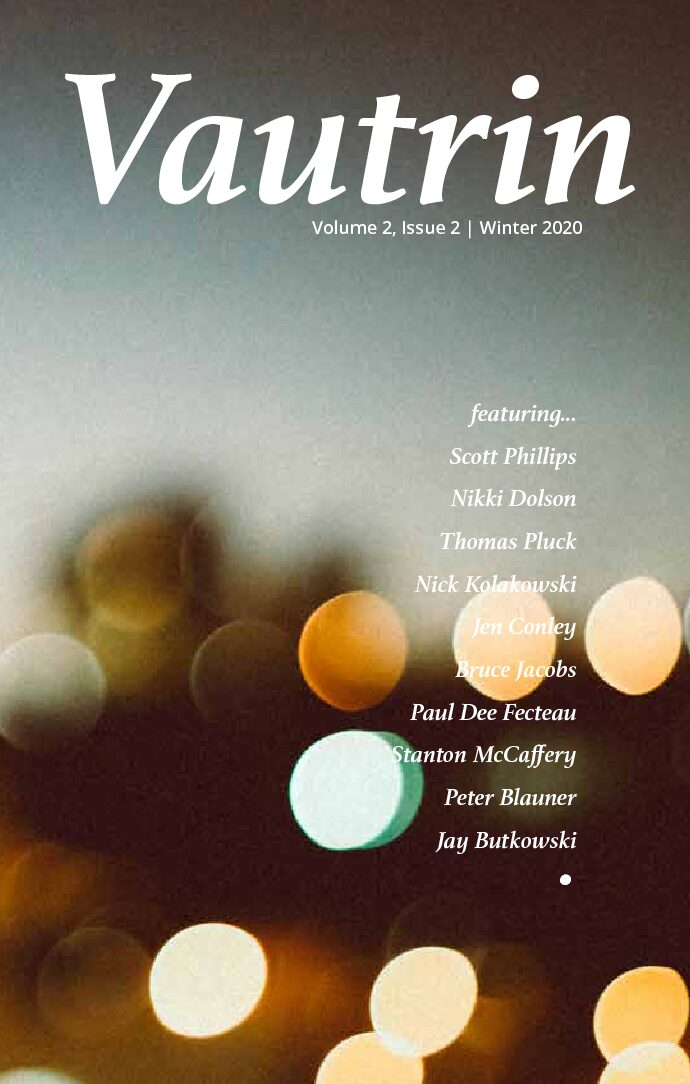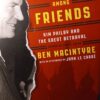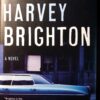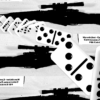By Gabriel Valjan /
It is late, and two men in dark suits in a sedan drive up to the pillbox in front of a gate. The two guards there ask for identification. The names of the visitors inside the billfolds are aliases, and the sentries know it. The two marines who act as sentinels understand they are nothing more than a uniform, a symbol of imperial might in a greater chess game of ‘Life, Liberty and the pursuit of Happiness.’ These soldiers understand that the gate behind them does not protect the world from the man inside the labyrinth.
The men inside the car are instructed to drive down a single road toward the lone residence. It has been understood between allies and enemies alike, from castle hallways to the battlefields since the time of Arthur, that no harm should befall the herald; and even if they were detained as hostages, they were to be treated with respect and dignity.
These two messengers have arrived with news for the man in the house from friends in Miami and New Orleans. Their proprietor of the house was known as the Old Man, and he lived in exile. Though he’d been fired, he kept at his job, worked long hours and tended to his numerous projects inside his home on a military reservation, a secret in plain sight. His place contained a library, second only to the Library of Alexandria, and the volumes that lined the shelves contained histories few ever read, saw, or even knew existed.
The guests came with a bottle of Old Overholt, the preferred whiskey of Doc Holliday and the Old Man’s brother. The gift was intended as a memento mori, a reminder to remain humble, that all men are mortal. Drink had contributed to the demise of their host’s brother, years earlier.
The Old Man, who was a man to be respected, a man to be feared, sat behind his desk. Like God, he kept the world lit and mesmerized with daylight, and like the Devil, he conjured the darkest of deeds in the dark. It’d been said that both angels and demons were allegiant to him and served his cause.
A secretary escorted his two agents into the room. She closed the door behind them. No names were mentioned. These heralds of his introduced themselves as Mr. X from New Orleans and Mr. Y from Miami by way of the field office in Mexico City. The Old Man smiled and said, “Welcome, gentlemen. What is the word from New Orleans?”
“Our friend is uneasy.”
“I can empathize, since this affair marks the first time a pawn overtakes a king.”
“Our friend in New Orleans says that he’d prefer the noisier prince to the king himself.”
“Fortes fortuna iuvat. And our man in Miami, how does he feel about the matter?”
“Enthusiastic, as expected, Sir.”
“I figured as much. Has he feet on the ground?”
“Yes, Sir. They’ve papered the city with pamphlets.”
Mr. Y placed his briefcase on the edge of the desk, unclicked the clasps. He reached in and withdrew a piece of paper and handed it to the Old Man. “Here is a sample.”
The Old Man pulled a pair of rimless glasses to his blue eyes and read the agitprop. The words WANTED FOR TREASON loomed large in bold and black. “Impressive. Quantity?”
“Print run of five thousand,” Mr. Y answered. “Sir, a question, if I may.”
The Old Man, dressed in a tweed jacket and gray flannel trousers, looked up. “Your question?”
“Five thousand flyers. Don’t you think that’s overkill?”
“Interesting choice of words.” The lips below the small and trimmed moustache formed a slight smile. “Any other concerns related to the flyers?”
“A minor detail, an observation, really.”
“Details matter, you two of all people know that. What is your concern?”
“These flyers, they’re to be distributed at the site by a mix of assets and associates.”
The Old Man waited for the conjunction ‘but’ or a well-timed and rhetorical pause and heard none. His silence said he expected the sentence and thought completed.
“The associates are Cuban, Sir.”
“And your point is?”
“If location is everything in real estate, geography sets the expectation that our friends handing these out should be Mexican and not Cubans. It’s a detail that could be nothing or everything, Sir.”
Always polite, he answered his man. “I count on our great education system to resolve that matter for us.”
“Sir?”
“Most Americans couldn’t distinguish a Cuban from a Mexican, or both from a Puerto Rican. They’d latch onto the simple fact that all three speak Spanish, and ignore the citizens from twenty-one other countries that speak the same language. As for the quantity, keep in mind that paper is as effective as seeds cast into the wind and on soil. We count on birds to swarm and consume them. We count on attrition, but we focus on that one seed that takes root, gentlemen. We only need that one seed for the desired outcome. Remember the Parable of the Mustard Seed from the Good Book?”
“Matthew 13:32.”
“Excellent, now, as to our friend in New Orleans, has he worked with Chicago?”
“He has.”
“They’ll supply the heat and expertise?”
The Old Man reached for his Molina pipe. He had no intention of filling the bowl with Yachtsman’s tobacco, which Mr. Y had given to him as a gift when they’d last met in a room, across the street from the Soviet embassy in Mexico City. The empty pipe gave him something to do with his hands. He understood their concerns and why questions were asked, but to him it was all a form of mental exercise, a way to keep his mind agile.
“They are supplying native talent and one foreign import.”
“The Frenchman?”
“Yes, Sir. Is that a problem?”
“No problem at all. My counterpart in DC has seen the tear-sheet. He thinks the man is a Corsican. It’s a nuance that doesn’t help his credibility, and it does matter.”
Mr. X and Mr. Y glanced at each other. Mr. X said, “Nuance, Sir, I don’t follow.”
“That’s the point. The world thinks Napoleon was French, when he was Corsican, which, at the time, was an extension of Italy. Small details matter, gentlemen. As for heat from Chicago, any changes within the talent pool since we last used him?”
“No, Sir. His team leader is out of Chicago.”
The Old Man’s fingers fiddled with a small box of matches. “Someone ought to call J. Edgar Hoover and Eliot Ness. Murder Incorporated is still in business. The question, gentlemen, is this: Is Chicago up to the task since this task requires skill and precision. This isn’t the usual up-close and personal for him. Is he ready to get wet?”
“Yes.”
“And our fall guy?”
“He’ll be in proximity for everyone to think he participated, which is all that matters.”
“Excellent,” the Old Man said. “Anything else?”
“A question since we last met in Mexico City.”
Mr. X looked to Mr. Y, who consulted his briefcase. He pulled out glossies, 8×10 black-and-white photographs. The photos displayed grainy silhouettes, a man in motion, in and out of the Cuban embassy in Mexico City. “There’s a discrepancy that concerns me.”
The Old Man thumbed through pages of photographic paper, the scent similar to fresh Xeroxes. “I see what you mean. I admire your attention to the less than obvious. State your concern.”
“There’s a noticeable height difference between our agent and the decoy.”
“Which is why we made the phone call to the Soviet embassy. The messages, his request for visas to Cuba are all we need.” The Old Man noticed the wince. “Is there something you wish to tell me?”
“I’m no linguistics expert but I don’t think our caller has the decoy’s Cajun accent right.”
“Interesting. I wouldn’t worry too much.”
“Heard one southern accent, you’ve heard ’em all.”
The attempt at humor was met with hard blue eyes. Mr. X apologized.
“I wouldn’t worry about these photos because the height difference can be attributed to the angle of the camera. There’s a thousand explanations for the fuzziness in these photos. The graininess is sufficient enough, but not so vague as to discount an identification. There’s also the psychological component. There’s a lot to be said for context and people wanting to fill in what they want to believe. As for our patsy…he will never be known for his sartorial elegance. He wears jeans and a white shirt. Bandy the image about enough, the eyes grow numb and forget the height discrepancy. People will see the same clothes until they don’t. Flood the market, so to speak, and you could substitute James Dean for him in these photos, and everybody will have forgotten two crucial facts.” The Old Man stopped and looked at them and waited for the inevitable question.
“Two facts, Sir?”
“James Dean is dead and two inches shorter than our man. Anything else, gentlemen?”
Mr. X looked to Y and Y returned the glance and nodded. He’d deliver the news.
“Two potential problems.”
“With New Orleans or Miami?”
“No, it’s closer to home, Sir.”
“Item one please.”
“It’s Volunteer, Sir. That’s code for—”
“Spare me. I know the name.” The Old Man’s jaw clenched, his temple pulsed. “The man is a whirlwind in a pair of pants. And what is it now with our partner from the great state of Texas?”
“He’s fussed with the seating arrangement.”
“I’m at a loss, my apologies. What seating arrangement?”
“In the car, Sir. The motorcade. It seems—”
The Old Man held up a hand. “I understand. His friend is in the front seat. Correct?”
“Correct.”
“Make it clear to him through the appropriate channels that he should cease and desist. If he is to persist, let that dim bulb know that I’ll place him in the front seat and strap him in myself. Understood?”
“Understood, Sir.”
“Second item, please.”
“There’s an A and a B to this one, Sir.”
“Is this a pop quiz?” the Old Man said. “Are we in elementary school, gentlemen?” When he said this, neither Mr. X nor Mr. Y understood that their boss had intended it as a joke. The gap could be blamed on a difference in humor, a gap between generations, since their boss was the first civilian director of the agency and more than twice their age, at an august seventy years old to their late twenties. “Continue, please. Tell me with what, whom, or where this two-part problem exists?”
Mr. X said, “The problem is with the decoy.”
“Okay. Elaborate.”
“Part A is that surveillance says he visited a furniture-store.”
“Shopping for the wife and child he has…what is the issue?”
“The store used to be a gun shop.”
“Used to be, as in it isn’t now, is that it?”
“Not quite, Sir. The owner forgot to take down the old sign, and he does repairs.”
“I see,” the Old Man answered. He rubbed the bowl of his pipe, impatient to indulge his vice. “He brought in the weapon then. Was there something wrong with it?”
“The firing pin was defective.”
“Has it been repaired?”
Mr. Y reached into his bag and produced another picture and surrendered it. The Old Man set aside his pipe and studied the photo. “What am I looking at here?”
“A bolt-action carbine, Sir.”
“I’m familiar with the rifle. Fast action, but it’s difficult to handle, and the damn thing is prone to overheating. Defective pin or not, it’s seen its day in the sun. I take it that the man in this photograph is relevant.”
“His name is Charles W. Greener. He repaired the pin.”
“Let’s hope Mr. Greener doesn’t become a problem. Is that it?”
“No, the decoy was seen at the Sports Drome Rifle Range testing the rifle after the repair. He shot all bulls-eyes.”
“Gentlemen, unlike the two of you, I was not in the service, but even I know there’s a world of difference between plinking a stationary object and hitting a moving target. That is why we have contingencies.”
“Contingencies, Sir? Oh, right, Chicago.”
The Old Man waved the photograph of the rifle and repairman and said, “Repaired firing pin notwithstanding, the odds of hitting something from the nest we built for him on the sixth floor are a million to one, and even the best of the best couldn’t slide that bolt fast enough to pull off a second shot and still hit something. Hence, the need for Chicago in front, because it’s always easier to hit something coming at you, instead of away from you. The solution here is to have someone drop an anonymous tip to the locals in blue about his practice session.” His eyes narrowed as if he’d done a calculation. “Did I miss part B to this question?”
Mr. Y deferred to Mr. X. “He’s on record multiple times saying he admires the target. How do we reconcile that contradiction after the fact?”
“Like we always do. What did Jesus do to heal the blind Lazarus?”
“I’m embarrassed to say I don’t remember, Sir. Laid his hands on the man?”
“Close enough. Jesus spat on the dirt and covered the blind man’s eyes with mud.”
“Mud?”
“Therein is your answer. Assault the eyes and ears, and drown the mind with both lies and truth, to the point that lies become the truth, and the truth is a lie for all to see. Rinse and repeat enough, the phenomena takes on a life of its own; it’ll regulate itself.”
“Regulate itself, Sir?”
“Think of a recursive function, or how a virus mutates. Will that be all, gentlemen? I’m itching for a smoke before I retire for the evening.”
Mr. X and Mr. Y collected the photographs, thanked the Old Man, and excused themselves. Before they reached the far side of the room and opened the door to exit the office, the Old Man called out to them.
“Sir?” one of them said.
“Have yourselves a pleasant and happy Thanksgiving.”
###
Gabriel Valjan is the author of the Shane Cleary Mysteries with Level Best Books. He has been nominated for the Agatha, Anthony, the Shamus, and Silver Falchion Awards. Gabriel received the Macavity Award for Best Short Story. He is a member of ITW, MWA, and Sisters in Crime. He is a regular at the Criminal Minds blog, lives in Boston, and answers to a tuxedo cat named Munchkin.

